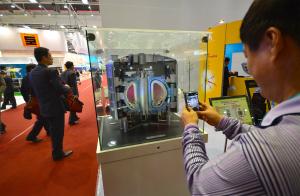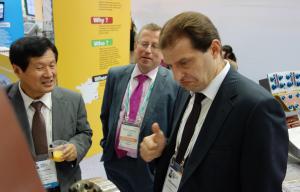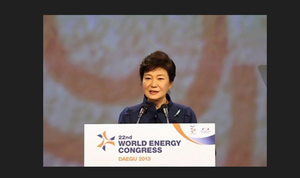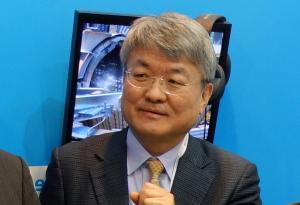A "true engagement" to bring about a sustainable future
The 22nd edition of WEC aimed to focus attention on another drastic change in the global politics of energy. What is at stake today is the very future of our planet. "Energy security is one of the biggest issues that humankind faces," insisted Korean Prime Minister Jung Hong-won in his opening address. "Depletion of natural resources, environmental pollution, and climate change pose an actual threat to people's lives."
Ban Ki-moon, UN Secretary General:
Park Geun-hye, President of the Republic of Korea:
Maria van der Hoeven, Director of the International Energy Agency (IEA):
Khalid A. Al-Falih, President and CEO of Saudi Aramco:
Dan Roderick, President and CEO, Westinghouse:
Yukiya Amano, Head of the International Atomic Energy Agency
"There will be an increase of nuclear power globally, but Asia will be at the centre of that, especially China, India and South Korea. Seventy new nuclear power reactors are being built at the moment—50 of them in Asia—in addition to the more than 430 already in operation worldwide."
Osamu Motojima, Director-General, ITER Organization:
Minh Quang Tran, Director-General of the Centre for Plasma Physics at Ecole Polytechnique, Lausanne, Switzerland:
Nebojsa Nakicenovic, professor of energy economics at the Vienna University of Technology:






